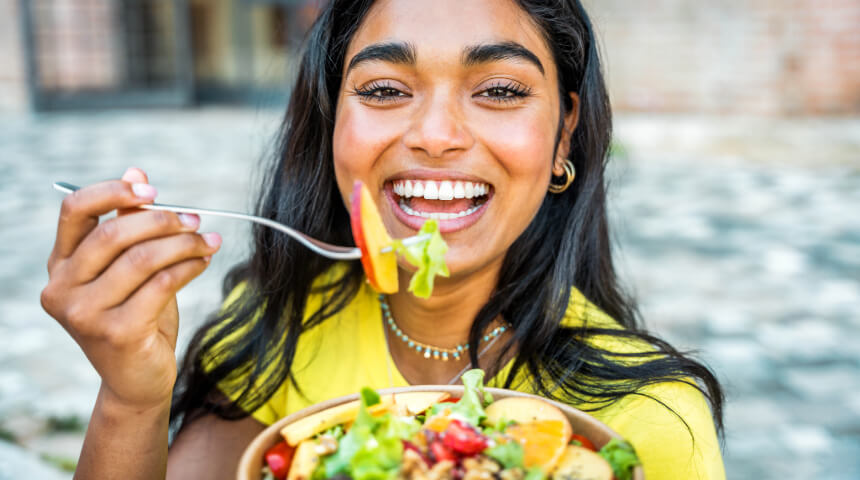Americans love cheese, consuming a whopping 40 pounds per adult each year, an amount that continues to climb despite the known health risks of the fatty — and undeniably delicious — protein source. Plant-based cheeses are increasingly available at the corner store, so all your cheesy cravings are about to be met in a more healthful way, right?
It turns out, many vegan cheeses are mostly — you guessed it — fat. But there are reasons to give them a try, and different ways to fit vegan cheese into a healthy diet.
What You Need To Know
The main reason to try vegan cheese is if you are vegan or vegan-curious. Vegans choose not to eat foods made with animal products, for reasons both environmental and ethical, so by definition vegan cheese contains no such substances. But if you’re thinking about trying vegan products for reasons like improving cholesterol, heart health or managing diabetes, there are pros and cons to vegan cheese that you need to be aware of.
Good News, Bad News
One of the main benefits of vegan cheese is its lack of natural cholesterol, which comes mostly from animal products, especially animal fats. But many vegan cheeses are made with coconut oil and other saturated fats that do affect cholesterol — and switching up one saturated fat for another isn’t likely to result in a healthier lifestyle. It’s important to consider all food intake in the context of a balanced diet that includes fiber and essential and non-essential minerals and vitamins.
Other drawbacks:
- A lot of vegan cheese has little or no protein, just fat and starch.
- Those that do have protein tend to taste the least like traditional cheeses.
- Vegan cheese is expensive — those made from nuts, peas or other nutrient-dense foods can run as much as $10 for a small cube.
Taste Test
Just as with traditional cheese, vegan cheeses have unique flavors that can satisfy those who eat them in reasonable amounts. And greater consumer interest in the market is yielding better-tasting vegan cheeses.
One fun way to explore these new offerings — before you commit to a bulk buy or use them in a recipe — is to purchase a few types and invite curious friends for an at-home taste test.
A variety of vegan cheeses are available at supermarkets, and health-food stores and vegan markets will offer even more choices.
D.I.Y. Cheese!
One of the best things about vegan cheese: You can make it yourself, from products you may have on hand, like nuts and non-dairy milk. Nut-based cheeses also have the benefit of being good sources of vitamin E and fiber.
To make cashew or nut cheese at home, soak the nuts overnight, then blend in a food processor with your favorite herbs and spices — or even finely chopped dried fruit — and a little non-dairy milk or water (it will look like nacho cheese, depending on proportions). You can use any nut — walnuts, cashews, pistachios and more. Experiment until you find what you like.
Treat It Like Butter
The bottom line on vegan cheese? If you like it, eat it, but treat it like butter — as a treat to be consumed in limited quantities as part of an overall healthy diet. Remember to keep portion sizes small, about 2 ounces, which is about a three-finger pinch for shredded cheese. And always read the label; many mass-produced vegan cheeses need additives to keep them shelf-stable and improve their ability to bind or melt.










